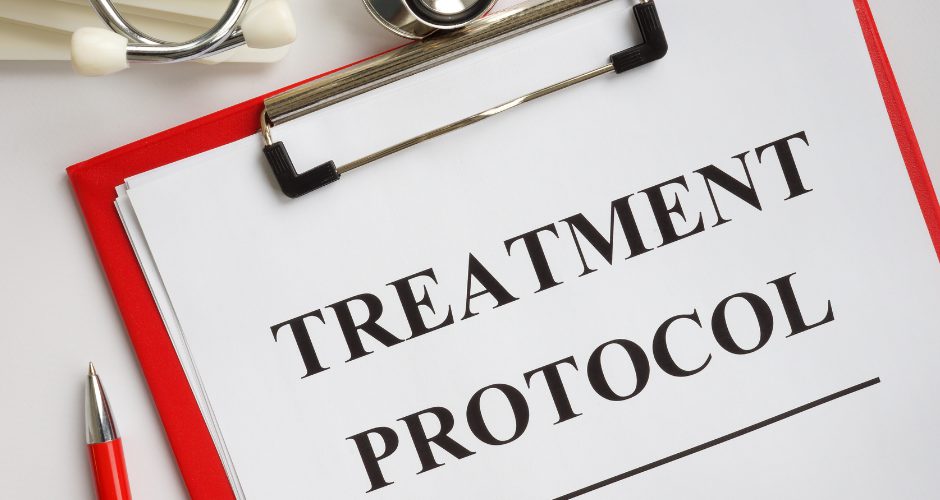The allure of travel nursing is undeniable: adventure, new cities, and the chance to make a difference in diverse healthcare settings. But let’s be honest, constantly adapting to new work environments can be a challenge. Let’s explore tips for getting oriented, building relationships with colleagues, and feeling confident in your ability to deliver exceptional patient care, no matter where your scrubs take you.
Table of Contents
Adapting to New Work Environments in Hospitals
Most hospitals will give you at least a couple of days of shadowing other nurses to adapt to new work environments, but what can you do if you need extra time to adjust?
Befriend the map: Most hospitals have maps at the information desk or online. Take one with you during orientation and trace the paths you took during orientation. Take note of anything that stands out to you in the area. Things like elevators, paintings, or posters are a great way to remember if you’re in the right place or when to make that left turn into the breakroom.
Study: You thought studying was done after college? Guess again, we never stop learning as travel nurses. Take your map home and study it. Create a mental image of you walking down the halls and try to put yourself back in that situation. It’s not always easy to remember everything, but by doing this every time you come home you will start picking up your new layout in no time.
Phone a friend: You may not have any “friends” in your new facility but that doesn’t mean you can’t ask a friendly face for directions if you’re lost. Odds are if they haven’t seen you before they will already assume you’re new and help you out. This also opens the door for you to make your first friend in your new city.
Repetition: Adapting to new work environments takes time, and you probably won’t become an expert overnight and that’s okay. Be prepared to come home and study your map, or spend a little extra time before or after your shift to rewalk the halls and get comfortable.
See also: Travel Nurse FAQ’s
Adapting to New Protocols

Protocols are another area that can be difficult to learn when you’re already adapting to new work environments. Knowing what protocols mean is essential for any nurse to be able to react to a situation quickly.
Carry a cheat sheet: most hospitals will include a cheat sheet with your badge that you can carry around with you so you can figure out what a code means at a glance. If they don’t provide one, write the codes down on a notecard and carry it with you so you can reference it when you need it.
Repetition is key: Remember how I said studying never stops? Creating flashcards to quiz yourself is a great way to memorize new information.
Never stop asking: If you don’t have time to create flashcards a great way to memorize information is to quiz yourself in real time. If you hear a code double-check that you know what it means with someone near you.
Pay attention during orientation: Orientation is usually your first real chance to start adapting to new work environments. In most cases, orientation will go over different protocols. Take notes and practice active listening to give yourself an advantage on your first day. Don’t be afraid to ask questions after all it’s better you ask now than during a crisis.
Remember, learning new environments and protocols takes time, so don’t get discouraged if you don’t get everything in your first few days.
See also: Finding the Best Housing for Travel Nurses
Strategies for Building Lasting Friendships
Making friends can be one of the hardest parts of adapting to new work environments. Not knowing anyone makes people more reserved, but doing the opposite can help you make friends faster.
Be approachable: It’s way easier to make new friends when you look friendly. Having a bright smile, and being willing to get to know someone is a super easy way to break down barriers.
Find other travel nurses: Odds are you aren’t the only travel nurse in the building. See if you can find some other travel nurses, and bond with them over similar experiences. If this is your first time as a travel nurse ask them about any tips they have.
Step outside the Hospital: You’ll have way more time to get to know someone outside of work. Don’t be afraid to ask for local dining recommendations, and see if some of the new friends you are making want to tag along. If you found other travel nurses, I’d be willing to bet they’d love to go out for a night and make a new friend. But don’t limit yourself to making friends at work! See if any local groups share the same interests you have, and try to connect with them.
Remember, you aren’t the first travel nurse trying to adapt to new work environments, and the odds are you aren’t the first travel nurse to step into your new facility. So don’t be afraid to step out of your comfort zone.
Adapting to new environments as a travel nurse can be a daunting task. When you go into these new environments, remember all of the challenges you faced during nursing school, and realize that you are capable of adapting to new situations quickly. Don’t forget that learning never stops, so don’t feel upset when you don’t get it right away.

